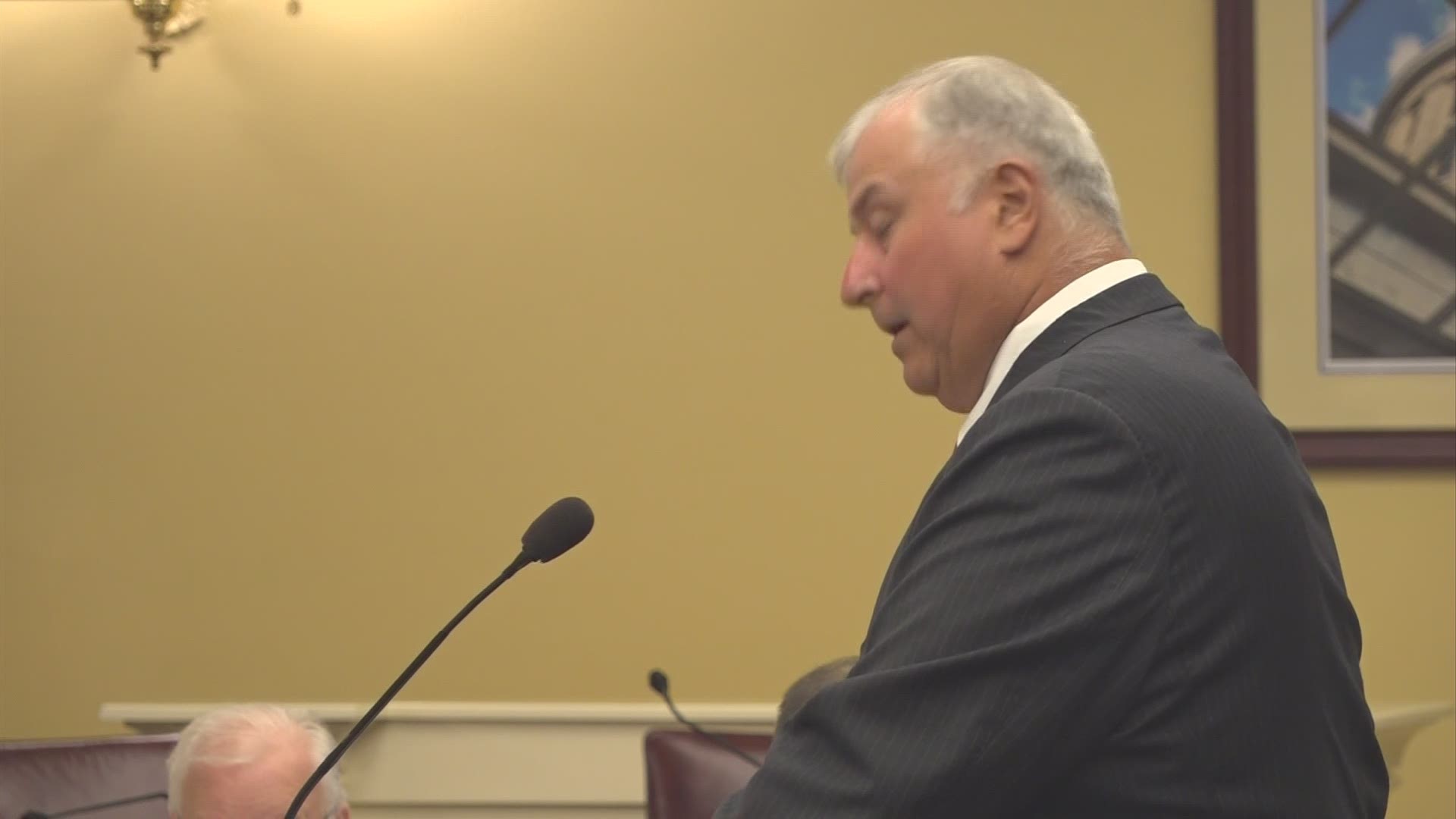COLUMBUS, Ohio — Larry Householder has found himself under the cloud of a federal investigation before.
The last time it happened, the once-powerful Ohio state lawmaker was ultimately never charged, bided his time and then returned to the House and eventually to his second stretch as House speaker.
In politics, sometimes what's past is prologue. If he manages to prevent the bipartisan effort to remove him now, it could set the stage for yet another political comeback by the Perry County Republican.
The difference this time is that Householder is under federal indictment. And while he has pleaded not guilty, two co-defendants and an involved nonprofit have all pleaded guilty in the case and FirstEnergy, the energy company at the heart of the latest scandal, has acknowledged in court filings making the bulk of the payments in an alleged $60 million bribery scheme.
Householder made an impassioned case Tuesday for not being expelled as a House member while he awaits the outcome of his criminal case, declaring his innocence and asserting that charges against him do not constitute “disorderly conduct” warranting removal.
“I have not nor have I ever taken a bribe or solicited or been solicited for taking a bribe,” Householder told a House committee weighing an expulsion resolution, saying he was in “complete shock” when charges were leveled against him.
Before Republican and Democratic colleagues, Householder made references to the Civil War and how that was the last time the Ohio House expelled a sitting lawmaker, John P. Slough for punching a fellow legislator.
“To say the resolution pending before this committee is unprecedented is an understatement,” Householder said. “Ohioans were traveling around in buggies and carriages the last time the House exercised its authority to expel a member."
Householder suggested that physical acts like Slough's are appropriately defined as “disorderly conduct,” while his criminal charges are not. He declined upon repeated questioning to provide any precedent for his legal argument, calling one such question “preposterous.”
In the U.S. Congress, which has a “disorderly behavior” threshold for expulsion, members have been expelled for violations of criminal law and abuses of office, according to the U.S. House's historical website.
Householder also made an impassioned speech about the many reasons why he would not respond to bipartisan calls to resign, making references to the tens of thousands of voters in his 72nd district who reelected him in an uncontested election last November.
"Just think of the precedent this will set: allegations are enough to remove anyone from office," Householder said. “That's absurd."
Then Householder went on to compare the bipartisan efforts to remove him to the attempts by Congressman Adam Schiff and House Speaker Nancy Pelosi to impeach former President Donald Trump earlier this year. “This is clearly politically motivated and I think everyone in this room knows that,” he said.
He and four associates were arrested in July in an investigation connected to legislation containing a ratepayer-funded bailout of two Ohio nuclear power plants. The $1 billion rescue would have added a new fee to every electricity bill in the state and directed over $150 million a year through 2026 to the plants near Cleveland and Toledo.
Federal prosecutors allege Householder and his allies took FirstEnergy money in exchange for orchestrating a scheme to elect Householder speaker, put his allies into House seats, then to pass the bailout bill and thwart a subsequent ballot effort to repeal it.
If he is convicted of the federal charges against him, he could face up to 20 years in prison and automatic removal from the House.
In 2004, Householder left the House the first time due to term limits while he and several top advisers were under federal investigation for alleged money laundering and irregular campaign practices. The government later closed the case without filing charges.
He surprised state political observers by launching plans to return to the chamber in 2015. Householder told The Associated Press ahead of that successful campaign that he had “unfinished business involving the district.”
“And it’s just something I love,” he said at the time. "It’s in my blood.”
After a nasty battle, Householder was again elected speaker in 2019.
Tuesday’s committee hearing was the first time Householder spoke publicly since being reelected to his House seat in November.
During the hearing, his colleagues said Householder's continued presence in the chamber continues to be a distraction from the legislative work, especially around energy policy, and has cast a dark, long shadow on the Statehouse as a whole.
“This isn’t about his innocence and his guilt. This is about regardless of his criminal or noncriminal activity,” Democratic Rep. Kristin Boggs, a member of the committee, told The Associated Press early Tuesday. “While he was leading the Ohio House of Representative the largest corruption scheme in state history happened under his watch, that cannot be disputed.”
The resolutions introduced to expel him from the chamber represent a rare bipartisan move for the House after a year-long war of words to address the disgraced lawmaker’s continued presence in the House.
Speaker Bob Cupp, a fellow Republican, said in a May 26 statement that his members are divided on the question of Householder's political future. Some prefer to see the criminal proceedings play out first, while others want him removed right away. Those lawmakers believe Householder's conduct was, at minimum, “grossly unethical,” Cupp said, and egregious enough to warrant a declaration of probable cause by a grand jury.
Farnoush Amiri is a corps member for the Associated Press/Report for America Statehouse News Initiative. Report for America is a nonprofit national service program that places journalists in local newsrooms to report on undercovered issues.

